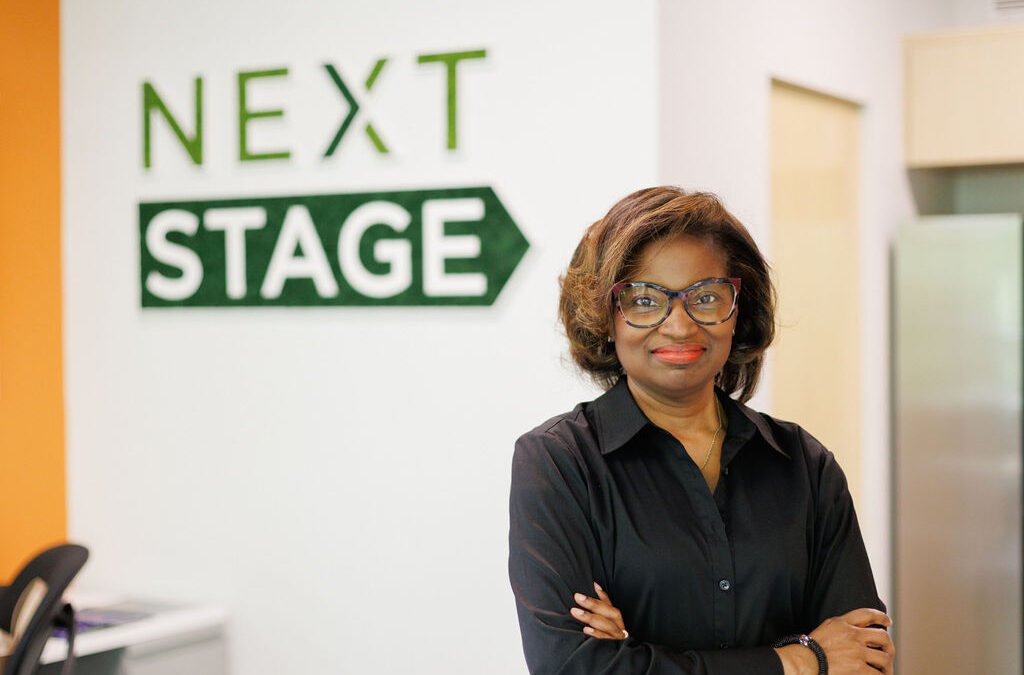Helen Hope Kimbrough is many things. She’s the Senior Director of Community Voice at Next Stage, recent Charlotte Ledger 40-over-40 Winner, Board Chair of the Charlotte Mecklenburg Library Foundation, podcast host and children’s author. She’s also a wife and mother and has some killer dance moves, to name a few.
This week, Helen spent some time answering three questions that give a brief insight into her leadership style and life philosophy.
Tell us about your proudest accomplishment from the last year
Last year, I had the opportunity to produce a documentary, Southside Homes: A Catalyst of Hope, through a client engagement between Alliance Health, INLIVIAN, and Next Stage. We formalized this partnership with the name, HOPE Collaborative. It’s definitely a career highlight because it leveraged Community Voice and explored the intersection of social drivers: health, housing, education, and workforce development at Southside Homes, a neighborhood founded in 1952 which remains one of the oldest housing complexes in Charlotte, North Carolina. More importantly, I was able to build and cultivate relationships with the residents, staff, and partners within the community and share experiences from an asset-based perspective and lens. The latter was a priority throughout the filming and eventually the screening.
A heartwarming expression that still resonates with me is when a local resident who lived near Southside Homes shared, “You all really did a great job with the film. It brought me back to my childhood.”
What do you hope to change this year?
I hope to facilitate more conversations around things that matter and bring a different perspective to the status quo. In a world that’s more separate and divisive, I believe that it doesn’t have to be this way. I grew up in a time where colleagues and friends didn’t always agree, but respected each other’s opinion and would then sit down and eat lunch or dinner together. This hierarchy, top-down opinion of who’s worthy and who’s not based on race, gender, identity, faith, economic status is not the way. We’re all worthy and have a contribution to make this world a better place.
Why should people care about Community Voice?
Community Voice is defined as a representation of diverse voices that must be heard, understood, and validated. It’s also a two-way directional approach geared toward listening to community and institutions alike while building trust, embracing transparent communication, and moving change-worthy initiatives forward together. Community Voice requires an investment of time, care and responsibility and an opportunity to be present and proximate.
Community Voice is about others and interconnectedness. The quote by Cesar Chavez below summarizes the WHY perfectly:
We cannot seek achievement for ourselves and forget about progress and prosperity for our community… Our ambitions must be broad enough to include the aspirations and needs of others, for their sakes and for our own.
Bonus Question: What are you reading or listening to right now?
The book that I highly recommend is The Power of a Positive No by William Ury. A few key takeaways: 1) Who are you trying to accommodate when you say YES when you want to say NO? 2) How do you model healthy communication and boundaries respectfully? 3) Respect and empower your NO – It’s okay to hold space for yourself.
Want to hear more from Helen? Check out Next Stage’s free Webinar series on Community Voice, hosted by Helen and Next Stage CEO, Josh Jacobson.
